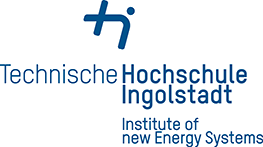Universities of applies sciences (UAS) are tertiary education institutions with a focus on practice-oriented education. While traditional universities usually offer a wide range of subjects, UAS mostly specialise in a limited number of fields of study. The first German UAS were founded around 1970 and, following the Bologna process, apply the degree standard of Bachelor’s and Master’s degrees.
Applied Teaching
UAS offer study programmes specifically tailored to specific work areas or industries. To provide students with an opportunity to familiarise themselves with their later working environment, study courses generally contain a compulsory internship semester. Moreover, many curricula offer students the possibility to do their final thesis in a company or external institution.
To ensure the practical relevance of study courses, professors at UAS are required to have accumulated a minimum of two years professional experience in their field of expertise prior to their teaching position at an UAS. This allows students to profit from their first-hand experiences and insights in the conditions in their respective area of work.
Applied Research
In addition to the strong focus on applied teaching, UAS also conduct research in the frame of projects, which are typically publicly subsidised or funded by industry partners. While universities generally concentrate on fundamental research, with their applied research approach, UAS work on solutions for concrete problems. This way they are inter alia contributing to solving urgent local and global societal challenges.
In Germany, UAS do largely not yet have the right to award PhD degrees. Nonetheless, several UAS offer PhD positions in cooperation with German or international partner universities. In this case, the partner university provides one supervisor and officially awards the degree itself, while the candidate may be based and practically conduct his research at an UAS.
Knowledge and Technology Transfer
The so called ‘third mission’ of universities describes their responsibility to work together with and for the society and engage in activities beyond the research environment. The transfer of knowledge and technology between UAS and industry partners is a key element of the applied teaching and research approach. This exchange is organised e.g. through regular public events or the creation of networks serving inter alia as a sound foundation for university-business partnerships. These networks or clusters usually follow a transdisciplinary approach by bringing together representatives from different backgrounds in one working group.
Knowledge and technology transfer does not only support the establishment of personal and institutional contacts, but also enables the development of state-of-the-art research and products and fosters innovation.
